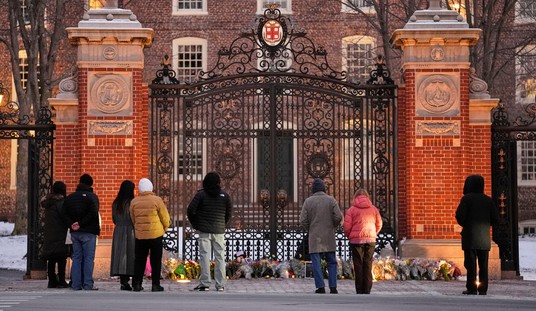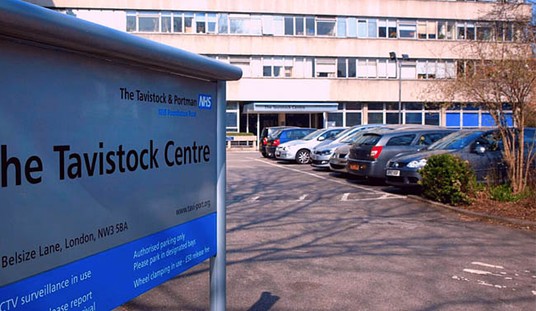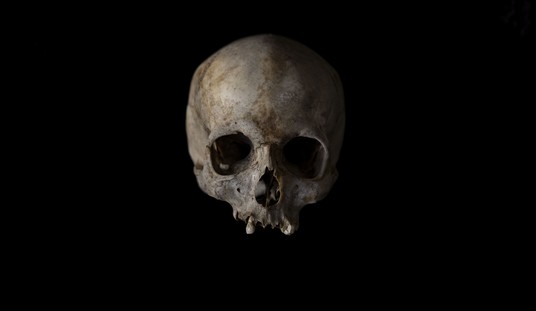I wasn’t aware that the NY Times published a sort of woke advice column called The Sweet Spot, though it makes perfect sense that they would. Previous columns have looked at feminist rage, fat shaming, and crushing on a co-worker. Today, the authors (there are two of them) responded to a letter from a college student asking about how to deal with white guilt:
I’m riddled with shame. White shame. This isn’t helpful to me or to anyone, especially people of color. I feel like there is no “me” outside of my white/upper middle class/cisgender identity. I feel like my literal existence hurts people, like I’m always taking up space that should belong to someone else.
I consider myself an ally. I research proper etiquette, read writers of color, vote in a way that will not harm P.O.C. (and other vulnerable people). I engage in conversations about privilege with other white people. I take courses that will further educate me. I donated to Black Lives Matter. Yet I fear that nothing is enough. Part of my fear comes from the fact that privilege is invisible to itself. What if I’m doing or saying insensitive things without realizing it?
Another part of it is that I’m currently immersed in the whitest environment I’ve ever been in. My family has lived in the same apartment in East Harlem for four generations. Every school I attended, elementary through high school, was minority white, but I’m now attending an elite private college that is 75 percent white. I know who I am, but I realize how people perceive me and this perception feels unfair.
I don’t talk about my feelings because it’s hard to justify doing so while people of color are dying due to systemic racism and making this conversation about me would be again centering whiteness. Yet bottling it up makes me feel an existential anger that I have a hard time channeling since I don’t know my place. Instead of harnessing my privilege for greater good, I’m curled up in a ball of shame. How can I be more than my heritage?
Whitey
If you’ve ever had a doubt that intersectionality is a substitute religion, now is the time to renounce it. I’m half-surprised the authors don’t recommend Whitey don a hair shirt to further mortify her privilege.
What the authors do actually recommend doesn’t seem very clear or very helpful. “Seek out the causes and classes and candidates that speak to your vision of America — one in which the lives of the disenfranchised matter more than white people’s feelings.” I mean, didn’t she say she was already doing all that? So how is doing more of it going to help her?
Here’s the other author’s take: “You have to relinquish your privilege. And part of learning how to do that is accepting that feelings of shame, anger and the sense that people are perceiving you in ways that you believe aren’t accurate or fair are part of the process that you and I and all white people must endure in order to dismantle a toxic system that has perpetuated white supremacy for centuries.” The shorter version of that: Your suffering is necessary. I’m sure that’s a great comfort.
Here’s what I would say to Whitey if he or she had asked:
It sounds to me like you grew up surrounded by people who looked different from you. They were your friends and you cared about them and that’s a good quality you can be proud of. But if you’ve become convinced your very existence is harming people or that you’re taking up space owed to someone else then something has gone wrong.
Your existence as a white person is not harming people. Anyone who says otherwise is trying to sell you something you shouldn’t buy. There’s no shame in being white, middle class, or straight so long as you aren’t trying to shame anyone else who isn’t those things.
So now you’re surrounded by a bunch of white people at an elite college and you feel guilt? Serious question: Did you cheat to get there or did you work hard and get good grades? Because if you cheated then you should feel ashamed and I hope you get caught and kicked out. But if you worked hard, they you did nothing wrong. But go ahead, make an appointment with the Dean of Admissions and ask him or her if they accepted you because you are white. I’d be curious to see what they say.
Do you know why people your age want to talk about their feelings so much? Because they like to talk about themselves a lot. You’ll probably feel less existential angst when you have to get a job and have less time to think about your existential angst. I’m not saying it’ll go away, only that it won’t seem as pressing as you probably think it is now.
To make an analogy, I remember having long arguments in college about various bands and what they meant and why they mattered. If you’d told me when I was 19 that U2 and REM weren’t extremely important I’d have been outraged by your ignorance. You won’t feel the same when you’re 40, trust me. You’ll still like the music, but the desire to talk about it incessantly will pass. At least it does for most people. There’s going to be more to your life than whatever you think is critically important right now.
Finally, since we’re talking about it let me say that racism is obviously very real and I’ve seen it up close, but the secret to not being a racist is pretty simple: Treat everyone as an individual when you meet them and never make assumptions about who they are because of how they look. And a corollary to that: Only treat people badly after you’ve become completely convinced through personal experience that they’re bad people. If you do both of those things you’ll be making your little part of the world a nicer place and that ultimately matters much more than you might think right now.
Of course, she didn’t ask me for advice but that’s my take.







Join the conversation as a VIP Member